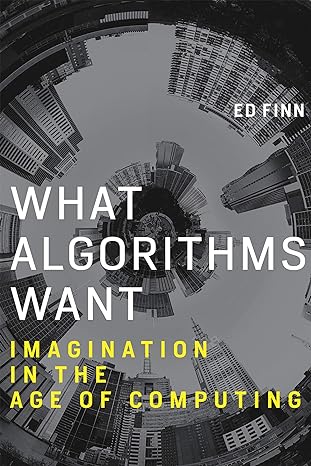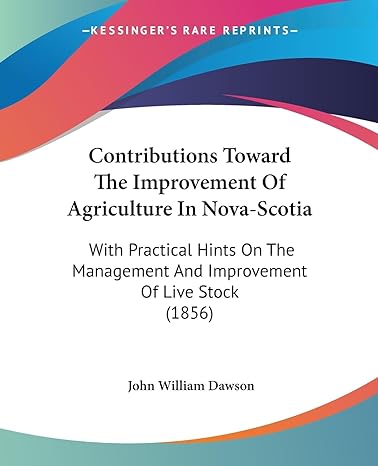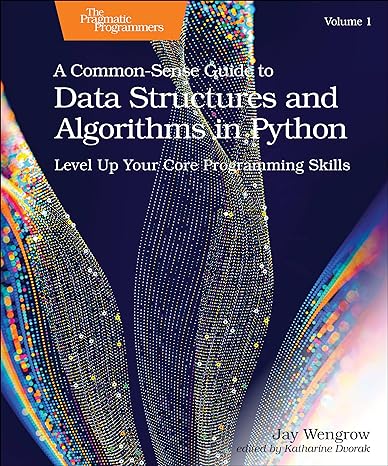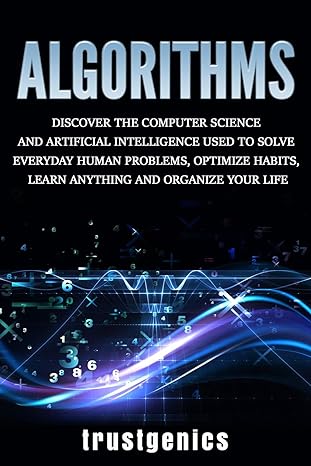Go back


What Algorithms Want Imagination In The Age Of Computing(1st Edition)
Authors:
Ed Finn

Cover Type:Hardcover
Condition:Used
In Stock
Include with your book
Free shipping: April 03, 2024Popular items with books
Access to 3 Million+ solutions
Free ✝
Ask 10 Questions from expert
200,000+ Expert answers
✝ 7 days-trial
Total Price:
$0
List Price: $16.41
Savings: $16.41(100%)
Book details
ISBN: 0262536048, 978-0262536042
Book publisher: The MIT Press
Get your hands on the best-selling book What Algorithms Want Imagination In The Age Of Computing 1st Edition for free. Feed your curiosity and let your imagination soar with the best stories coming out to you without hefty price tags. Browse SolutionInn to discover a treasure trove of fiction and non-fiction books where every page leads the reader to an undiscovered world. Start your literary adventure right away and also enjoy free shipping of these complimentary books to your door.
What Algorithms Want Imagination In The Age Of Computing 1st Edition Summary: The gap between theoretical ideas and messy reality, as seen in Neal Stephenson, Adam Smith, and Star Trek.We depend on—we believe in—algorithms to help us get a ride, choose which book to buy, execute a mathematical proof. It's as if we think of code as a magic spell, an incantation to reveal what we need to know and even what we want. Humans have always believed that certain invocations—the marriage vow, the shaman's curse—do not merely describe the world but make it. Computation casts a cultural shadow that is shaped by this long tradition of magical thinking. In this book, Ed Finn considers how the algorithm—in practical terms, “a method for solving a problem”—has its roots not only in mathematical logic but also in cybernetics, philosophy, and magical thinking. Finn argues that the algorithm deploys concepts from the idealized space of computation in a messy reality, with unpredictable and sometimes fascinating results. Drawing on sources that range from Neal Stephenson's Snow Crash to Diderot's Encyclopédie, from Adam Smith to the Star Trek computer, Finn explores the gap between theoretical ideas and pragmatic instructions. He examines the development of intelligent assistants like Siri, the rise of algorithmic aesthetics at Netflix, Ian Bogost's satiric Facebook game Cow Clicker, and the revolutionary economics of Bitcoin. He describes Google's goal of anticipating our questions, Uber's cartoon maps and black box accounting, and what Facebook tells us about programmable value, among other things.If we want to understand the gap between abstraction and messy reality, Finn argues, we need to build a model of “algorithmic reading” and scholarship that attends to process, spearheading a new experimental humanities.
Customers also bought these books
Frequently Bought Together
Top Reviews for Books
Meera Pathmanathan
( 4 )
"Delivery was considerably fast, and the book I received was in a good condition."










